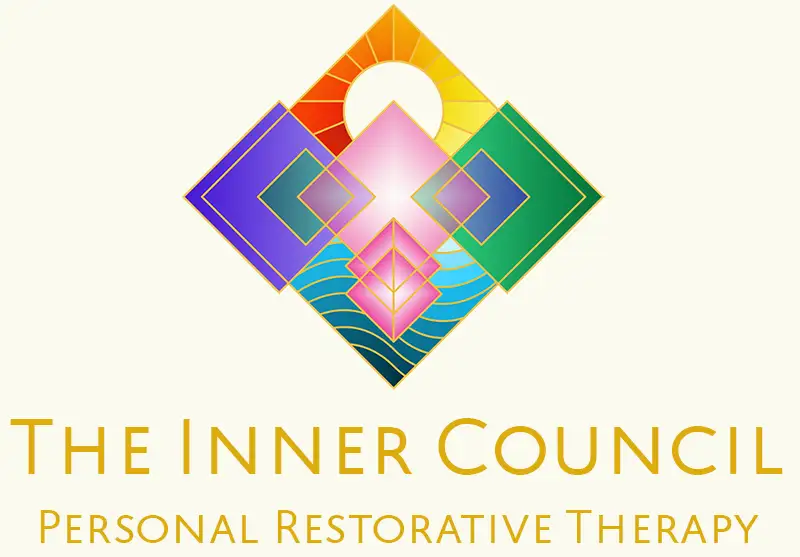BOOK YOUR WORKSHOP TODAY
All posts published here are presented as casual conversation pieces to provoke thought in some direction or another, they do not necessarily represent fixed opinions of the Inner Council, as our work exists beyond the spectrum of bound statement and singular clause.
Attachment and the Parenting Model
During our primary developmental years as infants we develop attachments to our primary caregivers, usually our parents, or parental figure(s). Attachments are part of our bonding in relationships and relate to a feeling of safety, security, support and having our needs met. Attachment theory was developed by British psychoanalyst John Bowlby who expressed that attachment behaviours were the responses to separation from attachment figures; our parents and parent connection.
The adaptive responses vary in infants, depending on the parenting, and develop as attachment styles, which often arise during later years in therapy based settings and counselling. In particular if the attachment that formed between child and parent was unhealthy, undeveloped and lacking in some way.
Parenting is a feature of inner child work and many behavioural and psychoanalytic forms of therapy. During initial reconnection and ensuing work with the inner child, a reformed model to the traditional parenting model is applied. Namely, the external parenting model is internalised.
Concepts and models that were previously learned from external sources are attuned to a different way of perceiving and experiencing life; learning from an internal source as your guide. Building a relationship from within sets the trajectory to change the course of personal evolution forever.
The inner child holds the key to opening this inner world; to your inner community and council. At the centre of this community is a wise guardian, or adult, who becomes the internal anchor for the child. The inner child needs a trust relationship bound in safety, beginning with a secure attachment that enables a richer internal experience to flourish.
What the Parenting Model provides
Inner child work is relational work and with support from the parenting model as the primary technique of building the trust relationship with your inner child, the inner community can lend support too. In addition to the inner child, the inner parent(s) and adult are present as the first layer of the inner community. These parts of self exist to fulfil different roles.
The parenting model provides nurture, guidance and protection for the inner child. They can include an inner mother and inner father, or blended as one parent, depending how one experiences and resonates with their personal practice. The adult is rational, practical and upholds the balanced sense and state of self in times of stress and activations (triggers) across the spectrum; physically, mentally, emotionally and spiritually.
A key aspect of the parenting model includes creating a secure attachment and thus a healthy attachment style. Traditionally, attachments are formed at a young age with one of our primary caregivers, usually our parents, or parental figure, in particular, one parent. This has an enormous effect and plays a significant role in our primary developmental stages of childhood.
It sets the course of our relational capacity, contributing to the development of patterns of behaviour, forming belief systems and emotional responses that we continue using well into adulthood, unconsciously. This includes the development of healthy self esteem and impacts overall well-being.
The extent to which our primary caregiver provided safety, security and support is correlated with how secure we come to feel in ourselves, in our relationships and externalised interacting with the outside world.
If we didn’t receive what we come to discover and know as healthy modelling in childhood, we will have adapted and compensated in numerous ways that results in our learned conditioning and programming. Such discoveries are made during relational based forms of therapy, trauma work and counselling, including inner child work.
The Parenting Model explained
An integral part of inner child work is to address adaptations that were made early on in childhood development and begin to unlearn them to enable the true self to emerge and live in full expression. Whilst this is important and a continual thread on one’s personal journey of healing and transformation, there requires a model to which one can apply these techniques to form healthy attachments and a grounded sense of well-being rooted in safety.
The significance of the inner parenting model is that the trust relationship built with our inner child becomes the internal secure attachment. Thus, the person themselves becomes the primary attachment figure.
With this new lens, individuals learn to trust themselves, become their own inner leader and guide. Spiritually it enhances one’s sense of interconnectedness and forms a grounded trust and confidence in a person’s capacity to be the one who ultimately heals and integrates their life journey.
Revolutionising traditional ways of thinking and practice in psychology, psychotherapy and counselling based roles, it has proved a highly effective method and technique for supporting individuals through trauma, overcoming limiting beliefs, deconditioning unhealthy behaviours and emotional turmoil.
Acknowledging a solid foundation is needed for individuals to reconnect with their inner child and learn how to form a lasting trust relationship with themselves. It is an all encompassing model that practitioners can impart and hold space to guide individuals through the application of this technique.
The Benefits of a Parenting Model
Individuals use the parenting model to make their own breakthroughs and directly impact their journey of healing. True empowerment occurs when one’s own inner compass, wise guardian, is active, present and able to respond. Without the need to rely on an external source, or person, to provide this for us, the parenting model enables individuals to achieve a sense of autonomy within.
A greater parenting connection unfolds with the adult and inner child as a secure foundation is nurtured through consistency and persistence. The connection creates an attachment that is safe, secure, supportive and loving. These are essential components that enhance individuals’ well-being and contribute towards the development of healthy self esteem.
Some of the benefits the Inner Council has observed during participant journeys with inner child work include:
- Decrease in fear, doubt and self sabotage
- Greater confidence and self assuredness
- A grounded felt sense of safety and emotional security
- Decreased impact of severe or activating triggers
- Decreased impact of co-dependencies in relationships
- Greater presence and enjoyment from life
- Healthier, happier and meaningful relationships
- Greater internal stability and emotional intelligence
- Deepening connection and spiritual enhancement of intuition
- Greater sense of fulfilment and well-being
You lead the way
Creating a framework based on psychoanalytic theories that underpins modern day psychology and counselling practices to transform the primary relationship with oneself is available through the application of an established and psychologically sound model. Overcoming adaptive, learned, responses that are no longer serving your adult life by implementing techniques from a parenting model to support health and well-being is attainable.
We live in a world bound by relational aspects and interactions; we are social beings at heart and by nature. Learning to cultivate deeper, meaningful connection in ourselves and our relationships are part of the repair process in journeys of healing and personal transformation.
The parenting model provides a tangible technique to develop healthy attachment and self esteem; raising confidence, independence and resiliency. Reconnecting with your inner child is the first step in an integrational journey of personal healing and evolution; physically, mentally, emotionally and spiritually.
Attachment, modelling and the Parenting Model are foundational concepts that are introduced and applied during Inner Child Workshops. In addition, we have other articles that explore the theme of applying the parenting model in Reparenting Considerations.





